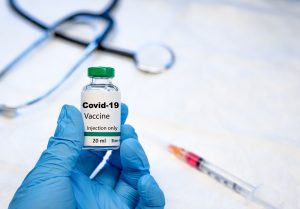
You, like many, may have been champing at the bit for a COVID-19 vaccine. Perhaps now you’ve had both shots and are feeling energized about moving forward with your life.
But how fast should you move?
At this point, very slowly. In fact, you should continue to behave like you’re unvaccinated and closely follow all public health guidelines currently in place. That means despite your vaccinated status, you should keep:
- Wearing a 3-layered mask
- Maintain social distance
- Practice impeccable hand hygiene
- Refrain from hosting or attending social gatherings
- Avoid travel
- Self-isolating and quarantining when applicable
Basically, you want to keep your guard up and exercise caution.
The reason why is because researchers are still learning how the vaccine works. Thus far, they know it effectively prevents, or at least drastically limits, severe COVID-19 infections.
Multiple vaccine options have shown impressive results in both controlled and real-world settings. New data suggests the Pfizer vaccine is 94 percent effective in the real world.
But although the vaccine can prevent the COVID-19 disease, it may not prevent infection. Here’s what I mean:
There is evidence to suggest that vaccinated people can still test positive for the virus even though they remain symptom-free. What researchers don’t know is if the virus carried by vaccinated individuals remains infectious.
So even though you’re likely safe from contracting a severe COVID-19 infection, you still may be able to spread it to the unvaccinated.
That means that it’s still too early to take your mask off and head over to the grocery store or even your daughter’s house for a family dinner. Keep your mask on and avoid close contact for the time being.
In the case where you are confident that everyone in the room has been fully vaccinated for at least two weeks, continue current practices. Even still, it’s wise to follow the most up-to-date advice of public health officials. New variants may pose a new challenge to the efficacy of vaccinations, and there is still so much to discover.
Hold on a little bit longer, and maybe before the end of the year, life will begin to resemble some degree of normalcy. You are almost there.